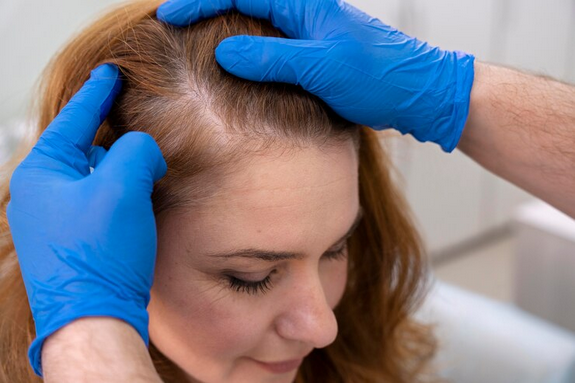Introduction:
The pursuit of beauty and self-confidence has led individuals to explore various avenues of cosmetic enhancement. Among the rising trends, hair transplants for women have gained significant prominence. Historically associated primarily with men, the landscape of hair restoration has evolved to embrace women seeking to regain their crowning glory. This article delves into the factors contributing to the increasing popularity of hair transplant for women, examining the cultural shifts, technological advancements, and emotional impact associated with this transformative procedure.
Changing Beauty Standards:
The societal perception of beauty has undergone a transformation, challenging traditional norms and fostering a more inclusive understanding of aesthetic appeal. Previously, discussions around hair loss and restoration were predominantly centered on men. However, contemporary beauty standards celebrate diversity and recognize that both men and women can experience hair thinning or baldness.
This shift in perspective has played a crucial role in the rise of hair transplants for women. Women are now more empowered to seek solutions for hair loss without facing societal stigma. The evolving definition of beauty embraces the authenticity of individual experiences, making hair transplants a viable option for women looking to enhance their confidence and appearance.
Technological Advancements in Hair Restoration:
The field of hair restoration has witnessed remarkable technological advancements, contributing to the increased acceptance and success of hair transplants for women. Modern techniques, such as Follicular Unit Extraction (FUE) and Platelet-Rich Plasma (PRP) therapy, have revolutionized the precision and effectiveness of hair transplant procedures.
FUE, in particular, allows for the extraction of individual hair follicles without the need for a linear incision. This minimally invasive approach results in faster recovery times and less visible scarring, making it an attractive option for women. Additionally, PRP therapy, which involves using the patient's own blood to stimulate hair follicle growth, complements hair transplant procedures, enhancing overall results.
Emotional Impact and Psychological Well-being:
Hair loss can have a profound impact on an individual's emotional well-being, regardless of gender. For women, societal expectations often place a significant emphasis on hair as a symbol of femininity and beauty. The emotional toll of hair loss can lead to a decline in self-esteem and confidence.
The rise of hair transplants for women is closely tied to the recognition of the emotional and psychological aspects of hair loss. Women undergoing these procedures report not just a physical transformation but also a profound improvement in their self-image and overall mental health. The restoration of a full head of hair can empower women, allowing them to reclaim their confidence and feel more comfortable in their own skin.
Customized Solutions for Female Hair Loss:
As the demand for hair transplants among women has increased, the field has adapted to provide customized solutions tailored to the unique characteristics of female hair loss. Women often experience hair thinning in a diffuse pattern, requiring a nuanced approach to achieve natural-looking results. Surgeons specializing in female hair restoration understand the importance of preserving the feminine hairline and creating a result that complements the patient's facial features.
The availability of specialized expertise ensures that women considering hair transplants receive personalized care, addressing their specific concerns and goals. This customization contributes to the overall success and satisfaction of female patients undergoing hair restoration procedures.
Conclusion:
In conclusion, the rise of hair transplants for women reflects a broader shift in societal attitudes toward beauty and self-expression. Changing beauty standards, coupled with technological advancements and a heightened awareness of the emotional impact of hair loss, have propelled women to explore hair restoration as a viable and empowering solution. The ability to customize procedures to meet the unique needs of female patients further solidifies the position of hair transplants as a transformative option for women seeking to regain their crowning glory.
As women increasingly embrace the option of hair transplants, the industry is likely to witness continued innovation and improvements in techniques, ensuring that individuals have access to effective and tailored solutions. Ultimately, the empowerment and enhanced confidence experienced by women undergoing hair restoration contribute to the broader narrative of self-love and acceptance in the evolving landscape of cosmetic procedures.





Comments